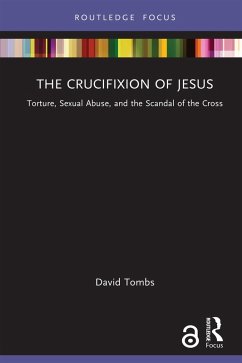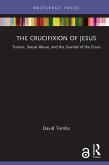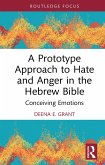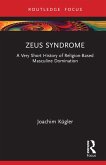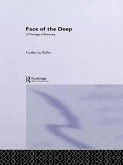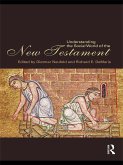Dieser Download kann aus rechtlichen Gründen nur mit Rechnungsadresse in A, B, BG, CY, CZ, D, DK, EW, E, FIN, F, GR, HR, H, IRL, I, LT, L, LR, M, NL, PL, P, R, S, SLO, SK ausgeliefert werden.
Mitzi J Smith, J. Davison Philips Professor of New Testament, Columbia Theological Seminary, Decatur, GA.
"The Crucifixion of Jesus provides fresh insight into the horrors of Roman punishment. Not only does David Tombs discuss the realities of state terror that other scholars regularly overlook, he also uses this ancient practice to talk about modern issues of sexual abuse, violence, and restoration. This is a powerful book that will forever alter one's reading of the biblical crucifixion narratives."
Sean Adams, Professor of New Testament and Ancient Culture, University of Glasgow, UK.
"In this book, David Tombs offers an evidenced exposition for why Jesus's crucifixion should be understood as sexualised violence. Studying historical texts and contemporary reports, he invites us to look carefully at Jesus' experience, to see it in new ways, and to ask ourselves new questions. Why is the idea of Jesus as a victim of sexualised violence so hard to acknowledge? What does this resistance reveal about how we still, today, stigmatise sexualised violence and those who experience it? How can awareness of Jesus' historical experience bring dignity, support, and healing to survivors today?"
Dr Elisabet le Roux, Research Director of the Unit for Religion and Development Research, Stellenbosch University, South Africa.
"David Tombs is a scholar of rare and critical originality. In this new book, Tombs carefully unpacks the logics and practices of sexual violence at work in crucifixion rituals. By drawing out the social, political, and theological implications of Jesus's crucifixion, Tombs not only builds on his singular, substantial contribution to academic research, but makes direct links to the practices and belief of churches today, and especially, discourses of resurrection. Scholars will be impressed with the clarity and ease from which Tombs arranges this complex material. But this is also a book for all those involved in Christian churches. Few of whom could read and remain unconvinced: the church simply must reckon with the sexual violence of Jesus's crucifixion if it ever hopes to reckon with its own history of sexual violence. This is a book of critical and timely relevance.
Janice McRandal, Director of the cooperative and Research Fellow, University of Divinity, Australia.

